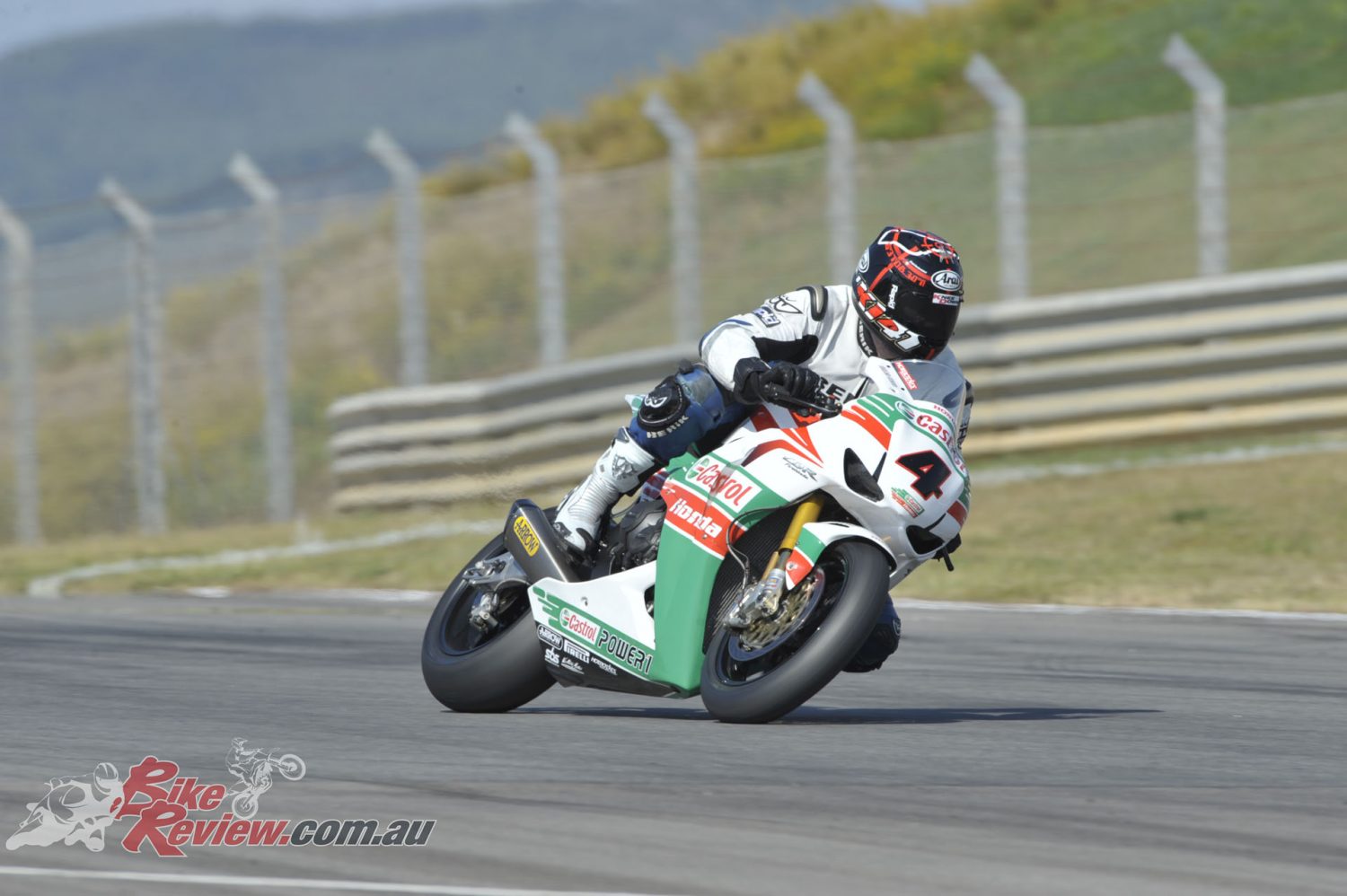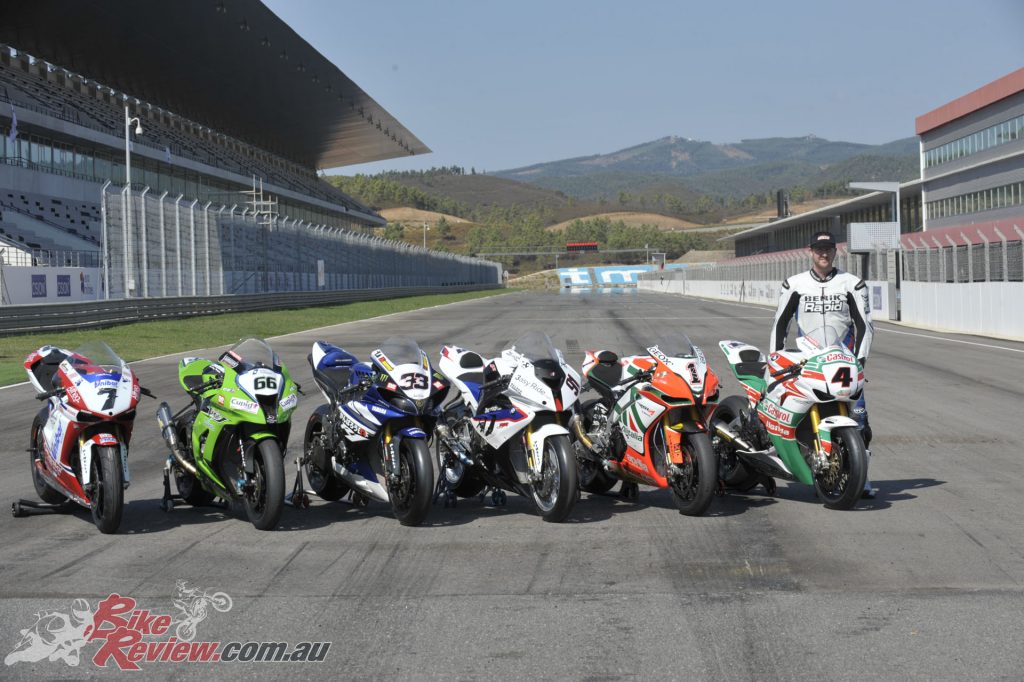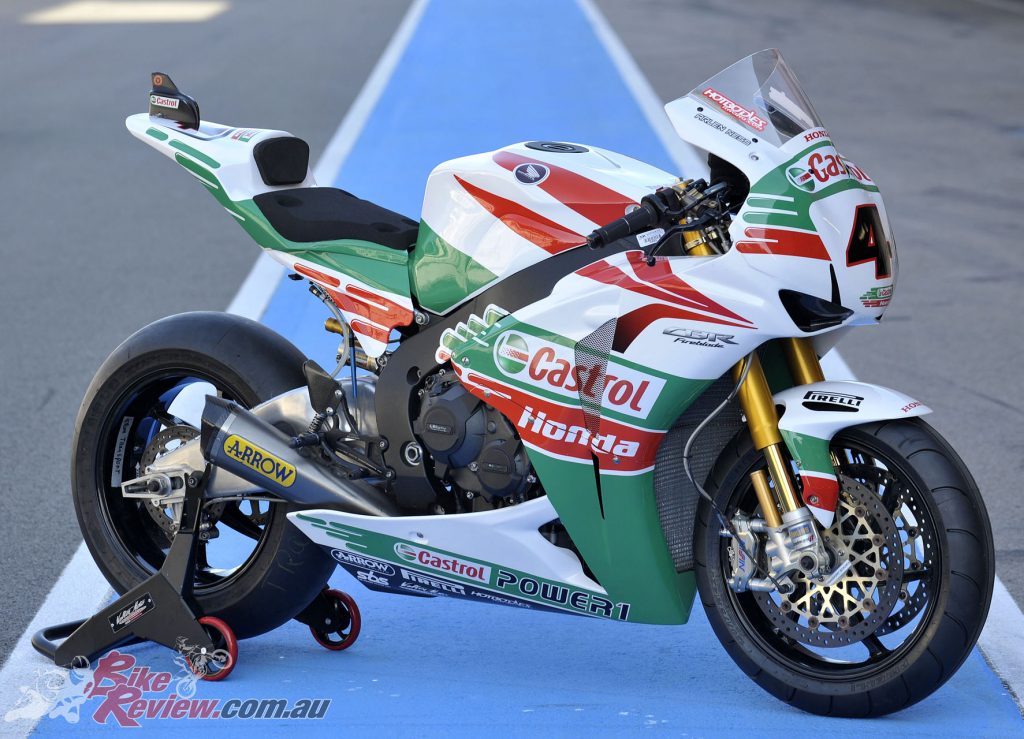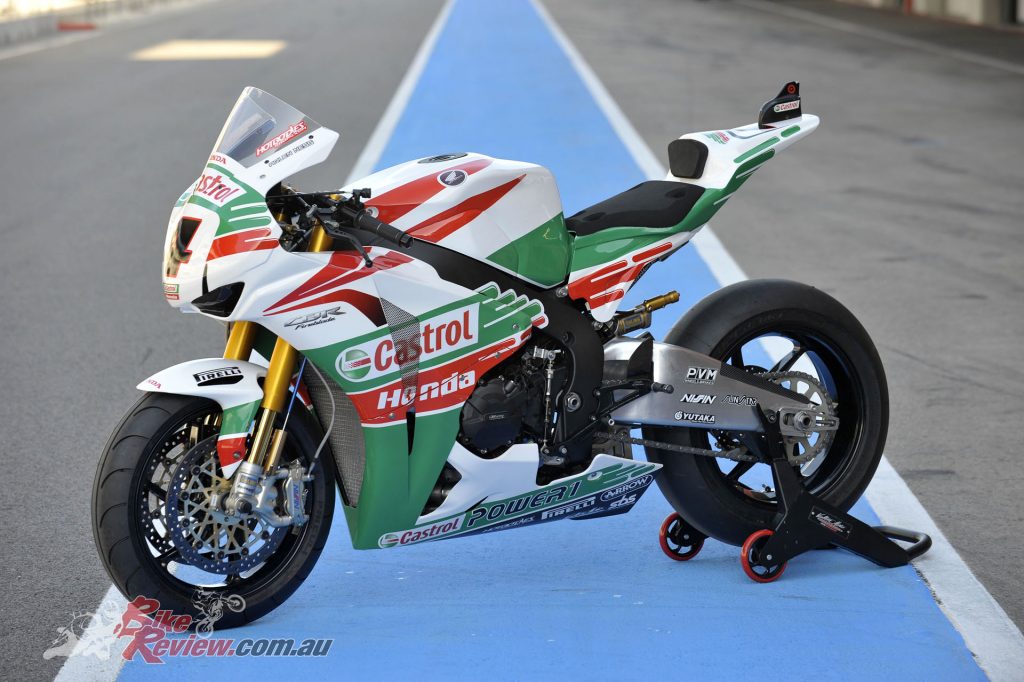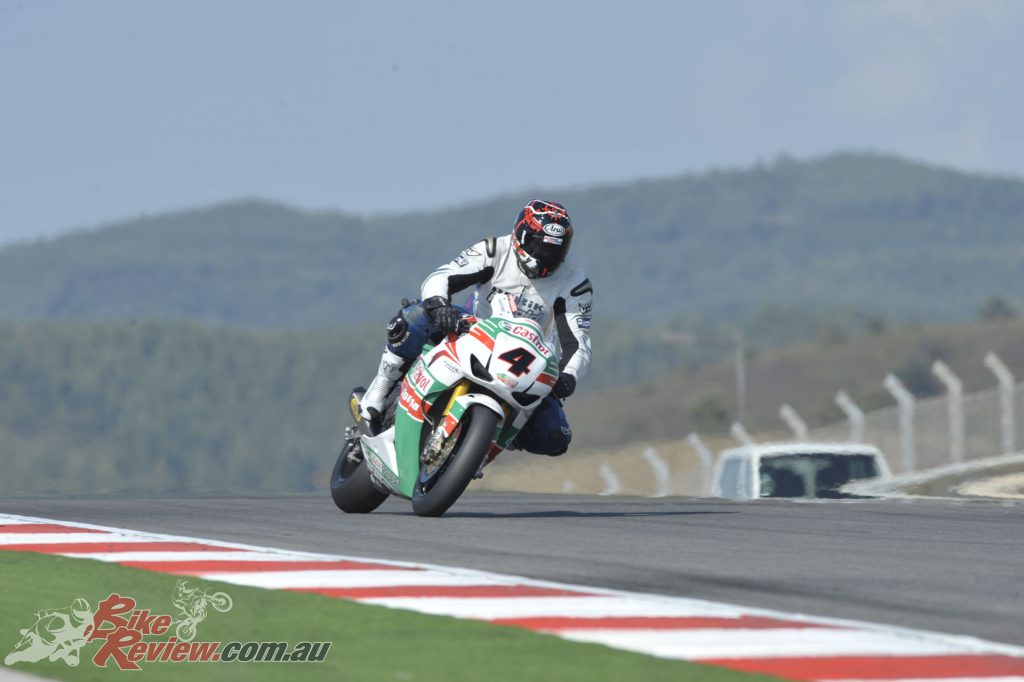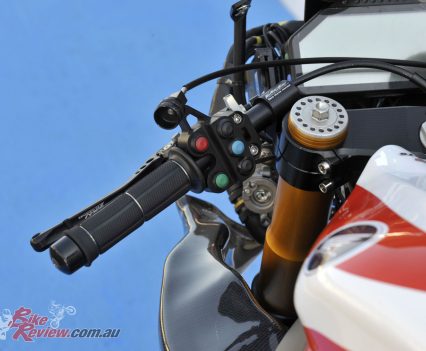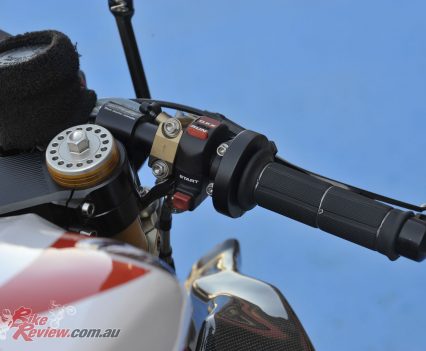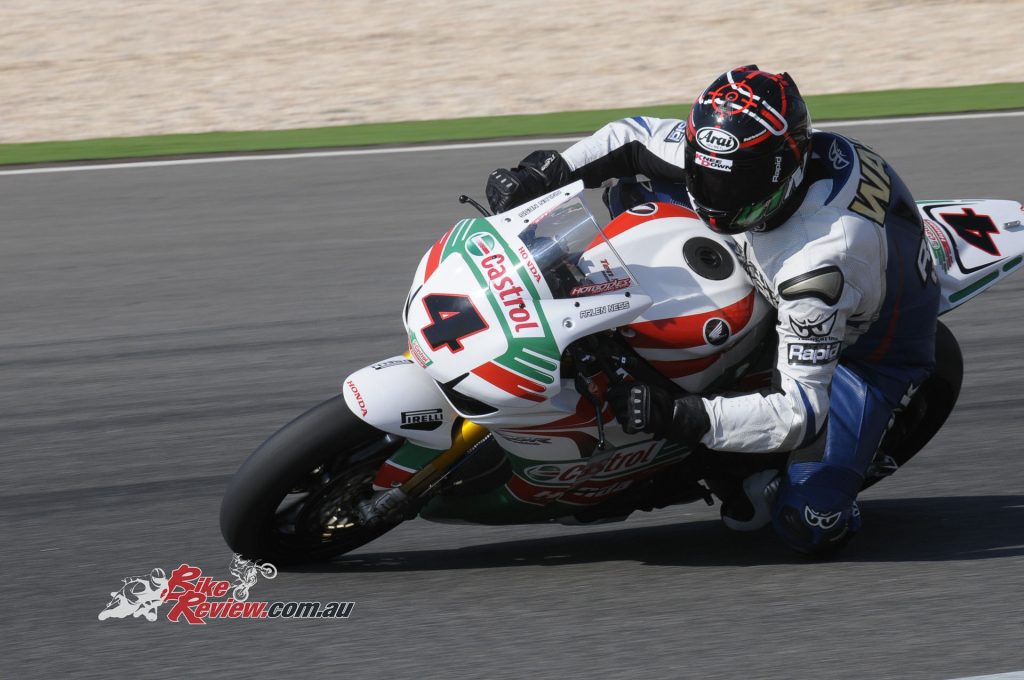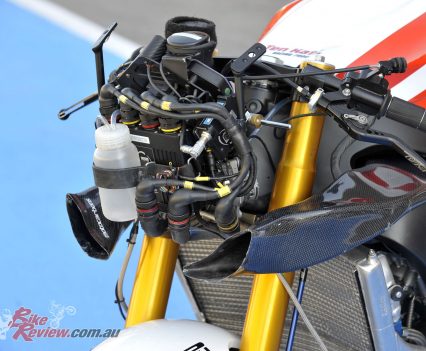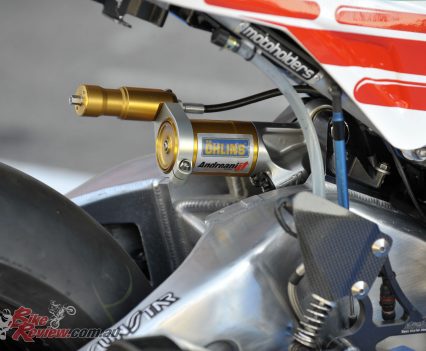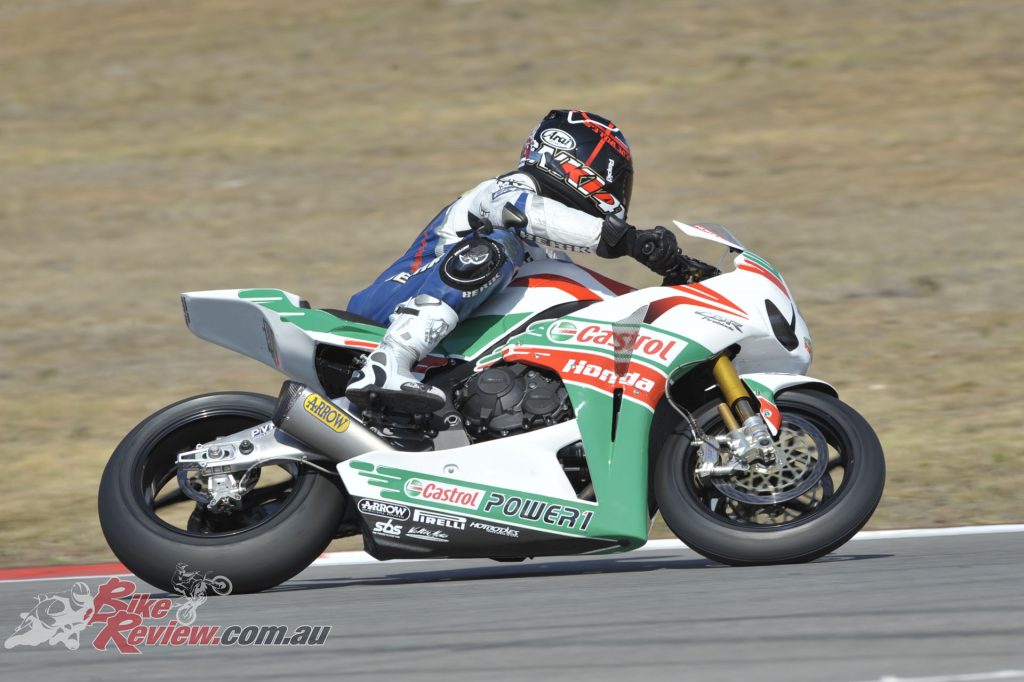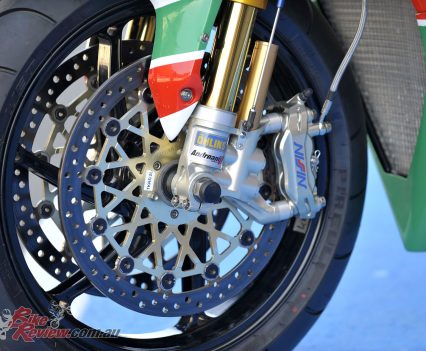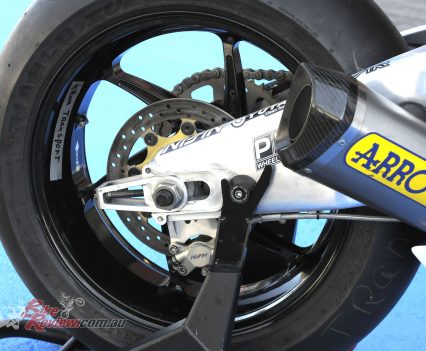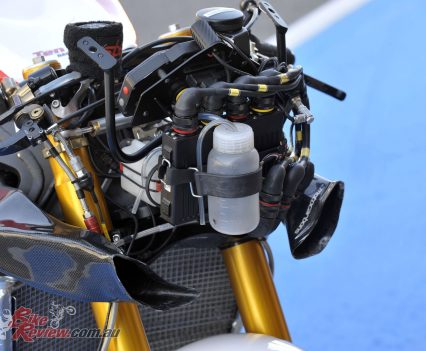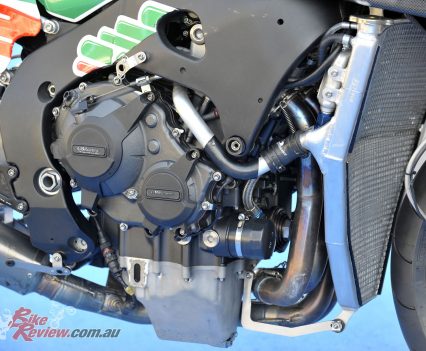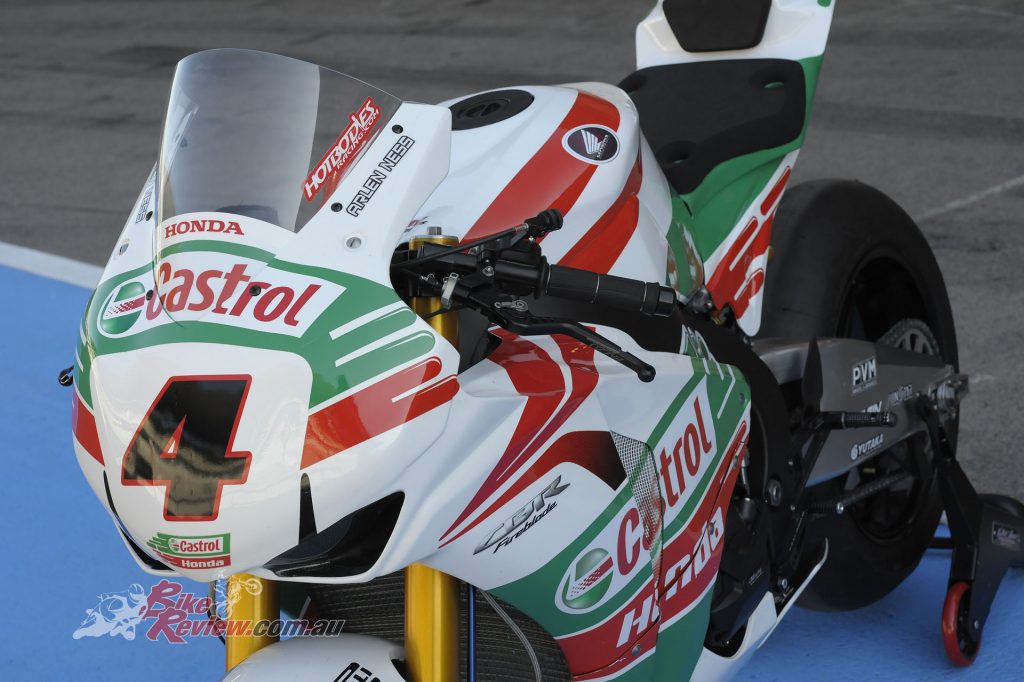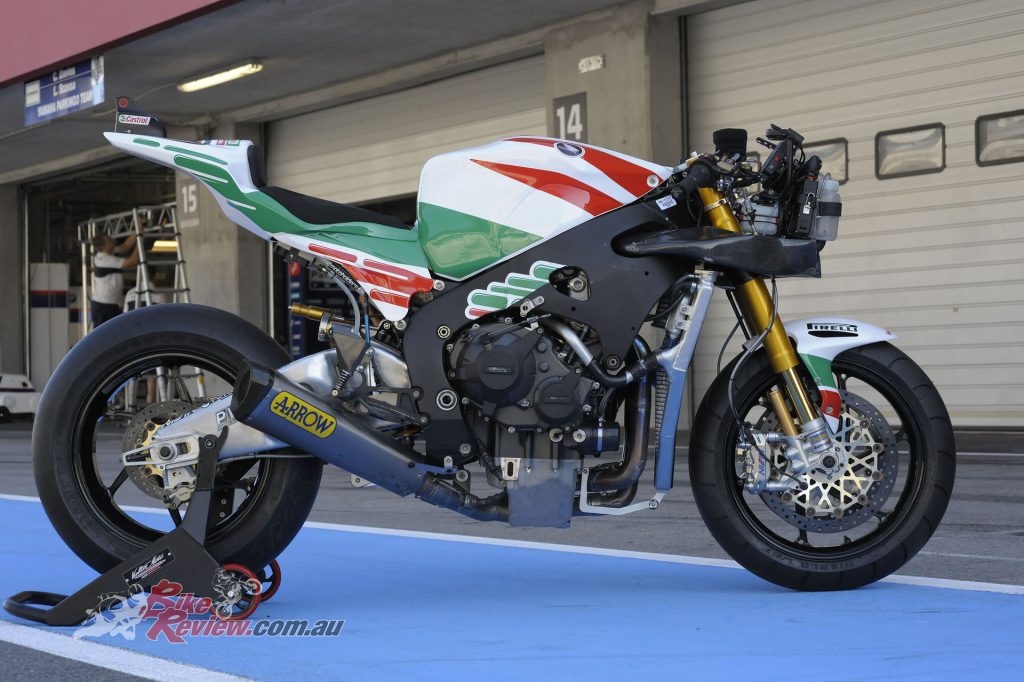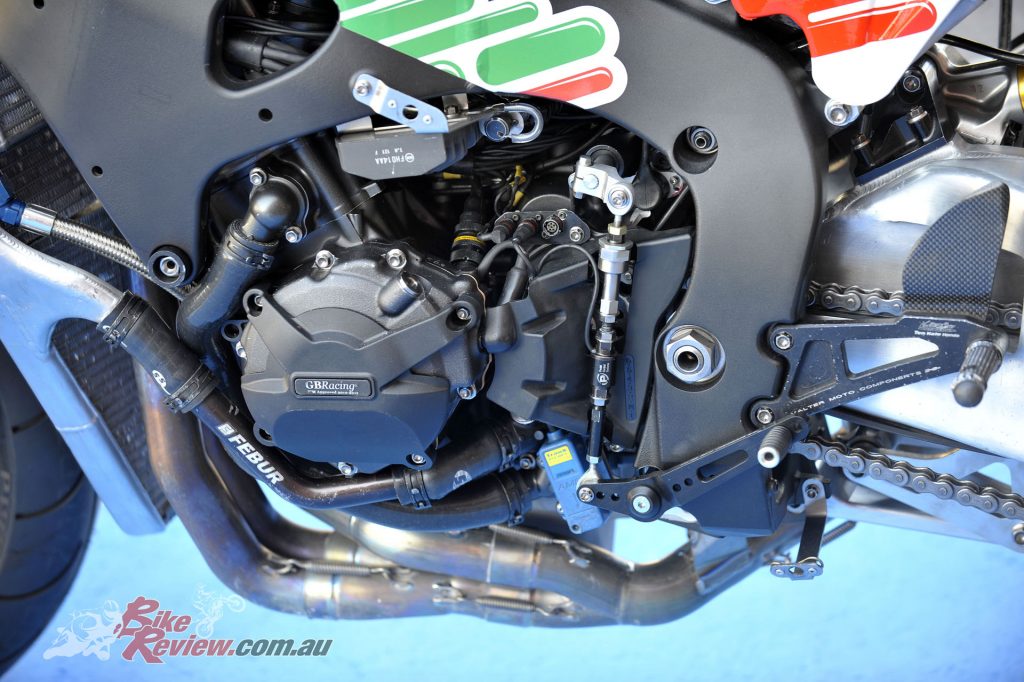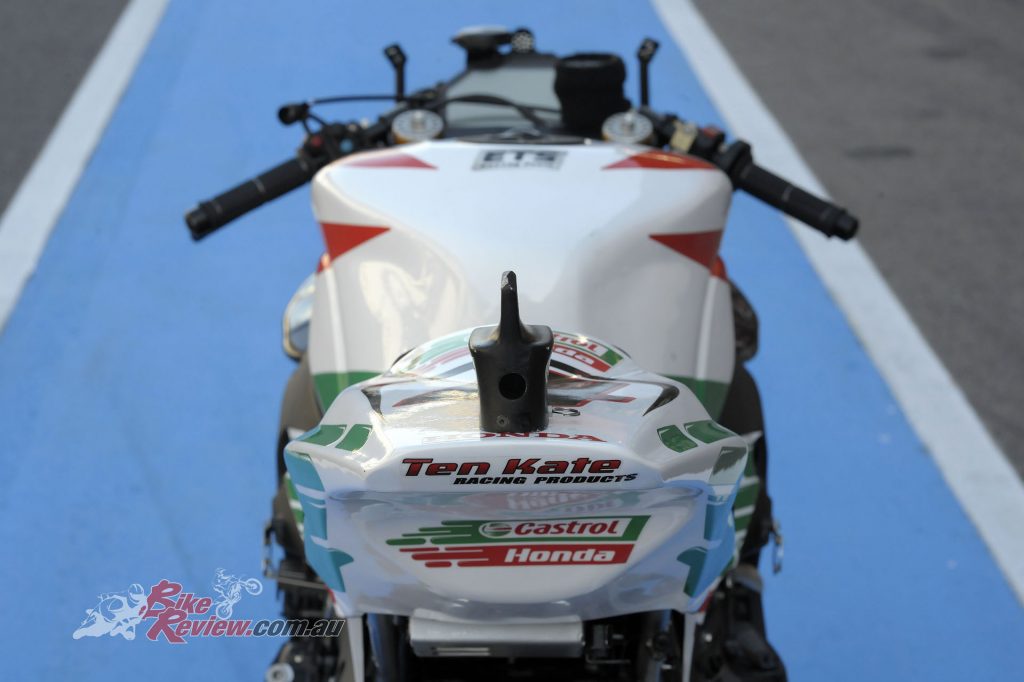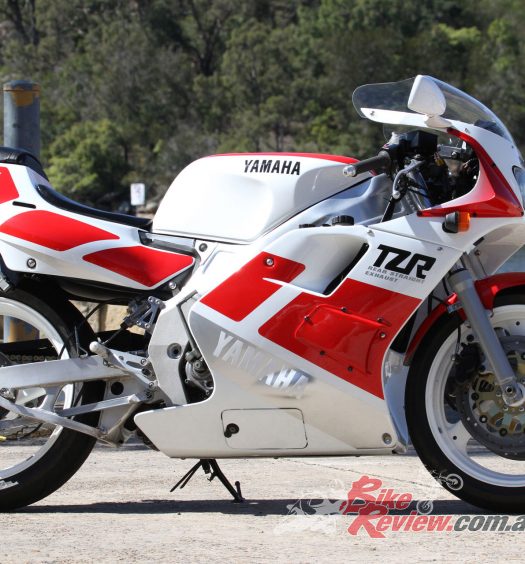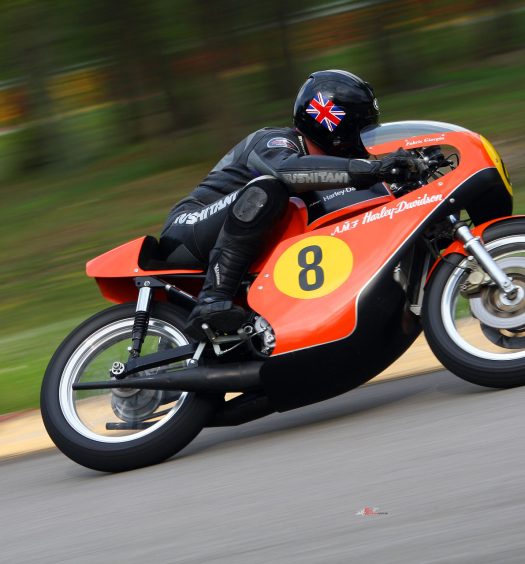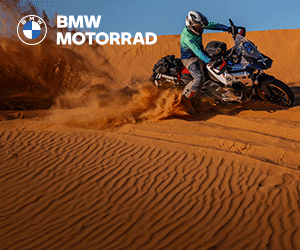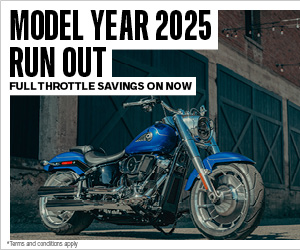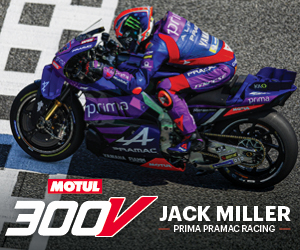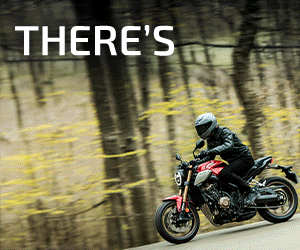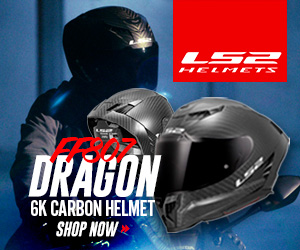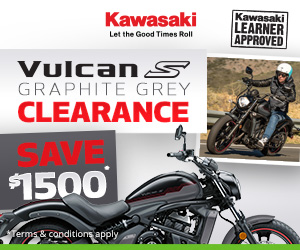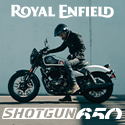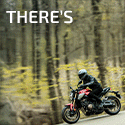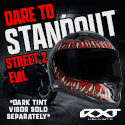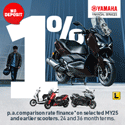Castrol Honda. A team name perhaps more famous than any other in the history of racing. Riding the superbike was an out of this world experience…Test: jeff Ware Photography: Studio Zac
I rode seven bikes during my day at the test event at Portimao, held on the Monday after the final WSBK round of the 2011 season. Each test was an experience in itself, from the team members to the bikes and the riders, but there was one bike I was really excited about.
Check out our other Throwback Thursday tests here…..
The bike I was most keen on actually wasn’t the Althea Ducati of Carlos Checa, or the Alitalia Aprilia of Max Biaggi. OK, so Marco Melandri’s R1 was one of the bikes I was really stoked to ride but – it was the Castrol Honda CBR1000RR that really had me excited.
Growing up idolising the likes of Aaron Slight, Carl Fogarty, Joey Dunlop and Colin Edwards on their Castrol Hondas has engrained the Castrol Honda colours and name in the youthful and enthusiastic area of my brain – you know that bit? It’s the part that fades when the mortgage and kids come along.
So as I jumped on the plane for the long haul from Sydney to Lisbon I started re-visiting the history books. After getting one or eight bloody mary’s into me on and being told about the ‘responsible drinking policy’ by the hostess, I shut my eyes and began to remember all the late nights watching WSBK in 1990s in our boiling hot family lounge room – then walking to school half asleep the next day, getting kicked out of class for spending my time sketching Castrol Honda RC45s in my books.
So there I was 20 years later, driving a hire car from Lisbon to Portimao to ride the latest generation Castrol Honda superbike. I’m thinking how lucky I am, how there’s a kid out there somewhere just like I was – watching the races on TV, Jonathan Rea posters in their room, sketching Castrol Honda’s in their schoolbooks but probably with a worse haircut than I had back in the day.
THE RIDE
I’ve just jumped off the Alitalia Aprilia RSV4, the fastest motorcycle I think I’ve ever ridden. It’s hot. I have no time to spare so I rush to the Castrol Honda garage for my allotted test on the CBR. I meet Tarsh Weston, an Aussie from Phillip Island who runs a PR and Marketing business with clients like Kawasaki, Ten Kate Honda and Castrol Honda.
Tarsh happens to be engaged to Jonny Rea. I tell her to stand by and watch how it’s really done. Then I tell the mechanic to put a real man sized spring on the shock, I eat lots of meat and drink lots of beer. I tell them, It took two Kangaroos to make this leather suit, I make terrible jokes when I’m nervous. A few laughs and a few odd looks and I’m heading up pit lane on the pit lane speed limiter. It all sinks in. I’m riding a real Castrol Honda WSBK machine.
Last year my test at Magny Cours was rained out, that was hard to take after an epic trip there. The year before I sent our own Wayne Gardner to ride the bikes, also here at Portimao. He found the Castrol Honda peaky, with vague brake and with wide offsets and lots of trail. He called it a one-line bike that was not as raceable as he expected on a circuit like Portimao. I was interested to see if things were still like this, as the other bikes on the day were not like that so far.
As I roll onto the chute and short-shift to fourth gear for a run down to turn one for the first time I find myself instantly feeling at home on the bike. Despite a height difference of about three meters between Rea and myself, I actually fit. The bars are fairly wide and flat but not as radically MX looking as they seem on TV. Just more of a flat angle than stock and slightly wider, they are not low, like Checa’s old school set-up on the Ducati.
It feels slim and the screen is nice and tall. The pegs and levers all fall in a natural position – much like the streetbike feels and the machine, despite having a fair amount of ride height in it, is not as tall in the back as I expected. In fact out of all of the machines I’ve ridden today this one feels the most balanced.
I have to put my head down immediately as we only get three laps, I’ve done a million laps here so I’m good to go. As I crest the hump around the back before of the circuit the front of the bike goes sky high. I didn’t ask if it has wheelie control – but either it doesn’t or it only works at higher rpm where proper riders would be in this section.
The acceleration down through the dipper is incredible – second to the Alitalia Aprilia. Stronger than the rest including the BMW, which I’m convinced, was heavily wound back for us journalists on the day.
I arrive at turn 10 a tight right-hander and brake hard. The forks dive through their stroke fairly quickly and the back of the bike gets a little unstable. This has been common today – my weight plus my lack of finesse on the brakes.
It’s easy to turn the bike regardless and get through the corner, accelerating hard down the hill around to turn 12. From 12 to the chute is where the Castrol Honda really feels fast. That power delivery again has me feeling confident to open the throttle earlier and harder than on the other bikes today so out of turn 13 I’m going faster than ever – there seems to be more feel from the rear of this bike than the other WSBK machines.
Cresting the hill onto the chute, the bike rears it’s head and gives a gentle shake. I tuck in tight and click via the quickshifter through the neat ‘box to fifth gear only. The CBR is so freaking fast compared to any other I’ve ridden, including the past three or four generations of factory Australian Superbikes. Think of your streetbike acceleration in second gear, now think of your streetbikes acceleration in second gear down a steep hill. That’s what this bike feels like in fourth and fifth.
I sit up just before the downhill and really brake in the dip at the end, back shifting to second gear. The gearbox is so neat the clutch slip makes the bike feel like a two-stroke. Hard braking while turning into T1 then accelerating hard to T2 and T3, the CBR rides the few bumps there and feels so nimble. Into the uphill T3 it is the only superbike I’ve been able to easily get in tight and neat quickly, stand it up and fire it off without feeling like I’m going to run out of track as I come onto the short straight at T5.
Between T5 and T6 the Castrol Honda is so fast but that braking stability I felt into T10 appears again at T6. The rear of the bike gets unstable and throws me out a bit. I do like the back of a bike to come around a bit on the hard brakes, it helps me have some sort of feel for the rear, but it throws me off a little on the Castrol Honda. I put it down to my 85kg weight. Still, no problems to turn it tight and fire it off up the hill out of the corner.
I have one more flying lap and that’s it. I might never get this kind of opportunity again. I’m going to enjoy this. I truly, honestly put my head down. If I crash then that would really suck but what would suck more is if I don’t ride a real WSBK bike in anger when I have had to opportunity to do so, I’ve fallen off about nine million bikes so it’s not going to be the end of the world.
The SC1 tyres fitted are so, so incredible. They were new when I jumped on the bike so after the first lap they are in that perfect place. Again the bike shakes its head gently over the crest onto the chute, I click fifth gear and bury my big head. I go as close as I have yet to the crest of the hill before rolling off and braking, the bike stays so stable because I’m calmer and slowed my actions down.
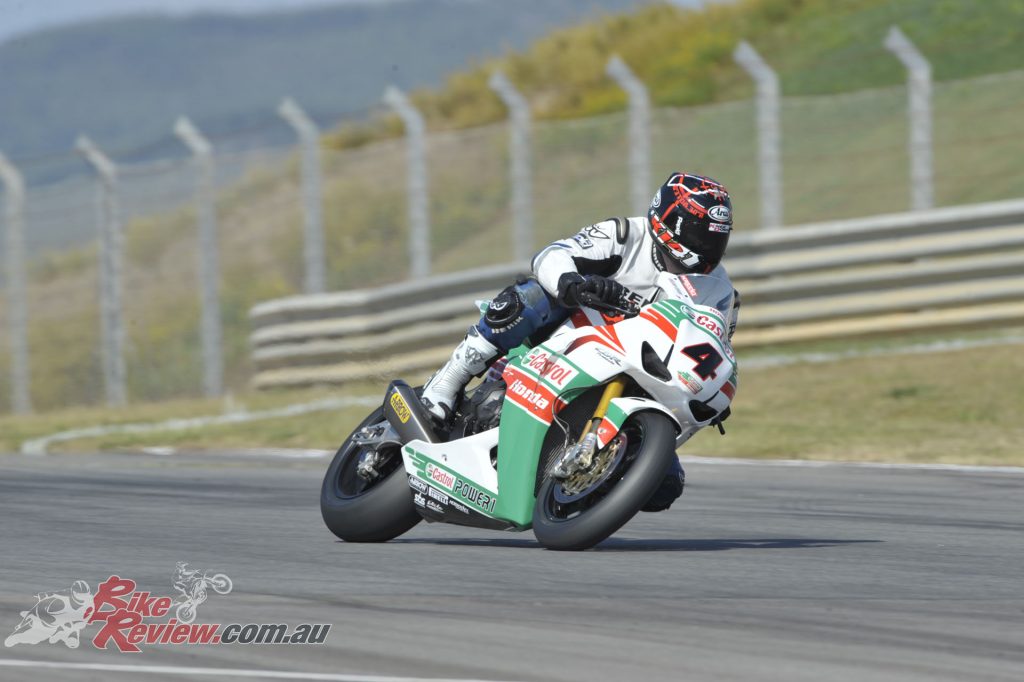
On my final lap I decided it was time to put the hammer down for real and give the bike everything it has.
I peel into T1 harder and with more lean angle than I have all day and crack the throttle much earlier, and wider, for the run up to T3. Again into T3 I’m braking harder and with more lean angle than before. I’m pretty much at my limit, which is domestic A grade and it’s been the same limit for 20 years. I head towards T6 with much more speed and really have one of those hard braking, turning, hold my breath shit I’m going to die entries into T6.
The bike absolutely hauls up the hill and through the fast T8 and again I’m getting that feeling of injury as I brake at what seems to be an impossible lean angle into T9. Up over the crest carrying more speed and rpm, the bike doesn’t try and spit me over the back like it did when I was going slower.
I go through the dip flat in third (pretty sure the WSBK guys do it in fourth!) and brake hard for T10. Fire it down the hill for and suddenly I’m again in need of Oxygen as I think I’ve overshot T13 but Jesus Christ these brake and tyres are insane. I almost fall off as I change direction for T14 but I get the bike in there really nice and tight and get on the throttle hard, using every inch of track on exit before rolling off gently and entering pit lane.
I’m shaking as I hop off the bike and grinning ear to ear. When you spend your life riding motorcycles for a job and ride your own bikes on weekends, it takes something special to really get that buzz you got the very first time you rode a bike. Well, I got that buzz on the Castrol Honda. I’m glad I didn’t crash, I’m glad I took the risk, I have no idea how fast or slow I was. I’m just stoked that I had the chance to experience how good these machine and their riders really are.
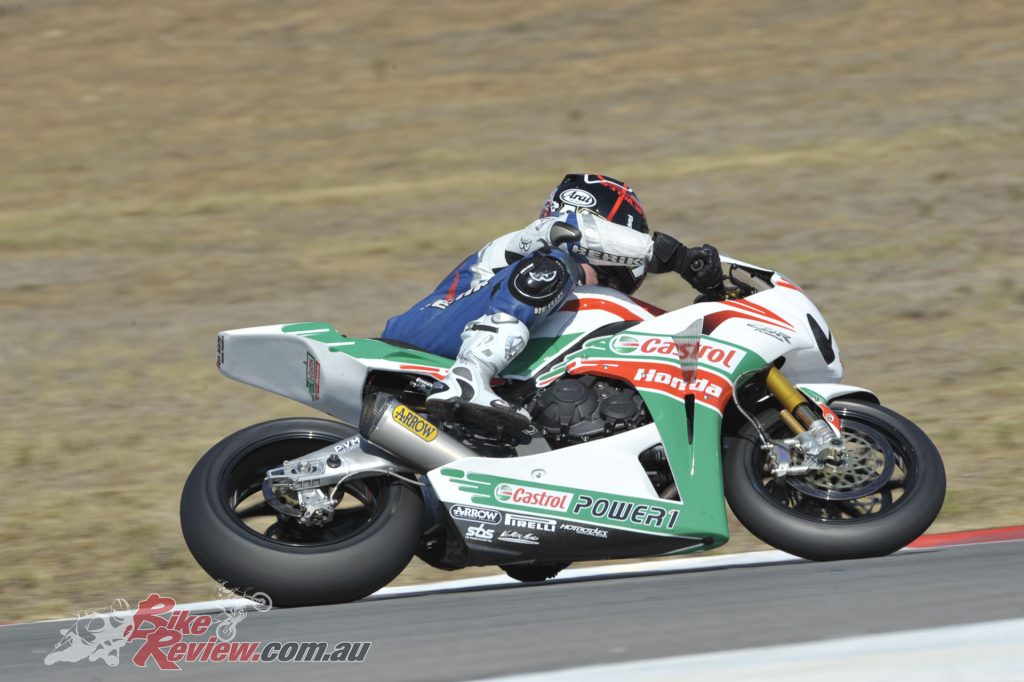
Balanced, fast, quick steering yet stable and needed much less lean angle than any of the other bikes out there
The Castrol Honda was amazing. Balanced, fast, quick steering yet stable and needed much less lean angle than any of the other bikes out there (aside from Melandri’s R1), to get through a corner at the same speed. It felt safer to ride. Used less track and also left more room for error and more lean angle up your sleeve if it all goes wrong.
Jonathan Rea Interview (2011 end of season).
Jonathan Rea spoke about how the 2011 Castrol Honda had some major changes all throughout the seasons between 2008 to 2011. He also gave his opinions on what needed to be changed and what he struggled with the most across the season on the bike.
JW – How much did the 2011 machine change between 2008 and 2011?
Jonathan Rea – As a race machine my bike has got much easier to ride. Mid-way through 2009 we swapped from WP to Ohlins suspension and together with my Team we have developed the PI electronics package to what it is today.
JW – What are two key strong points and weak points of the 2011 machine?
Jonathan Rea – Strongest points of the bike are high-speed direction change and it’s quite easy to ride. Weakest points are top speed and corner entry stability before the PI ride-by-wire was introduced mid-way through 2011.
JW – What are the main two key improvements you have asked for 2012?
Jonathan Rea – We will now work with the Factory Ohlins suspension guys as well as one of their suspension technicians and my team are working hard to find some horsepower.
JW – Did you have fun riding the 2011 Castrol Honda?
Jonathan Rea – To be honest in the middle of the season I was enjoying riding it at all – and then I got injured – which was maybe a blessing as when I came back we started to work towards the 2012 bike which meant changes with electronics, Cosworth PI and the ride-by-wire introduction.
JW – Can you win the title this year?
Jonathan Rea – I think any one of four guys can win the title this year and I count myself as one of those four guys. It won’t be easy as I need to work on consistency and the Team need to work on giving me a bike that I can win on every weekend. But hopefully we’ll be in with a strong chance.
SPECIFICATIONS – 2011 WSBK Castrol Honda Fireblade
Power: Over 215hp
Wet weight: Under 165kg
Fuel capacity: 22L
Engine: Liquid-cooled 16-valve inline four-cylinder four-stroke
Bore and stroke: 76 x 55.1mm
Displacement: 999.8cc
Fuel delivery: PI Research PECTEL fuel injection, 46mm throttle-bodies, HRC airfilter and airbox
Exhaust: Arrow four-into-one titanium
Gearbox: HRC kit cassette style with 1.717 primary ratio, race shift with quickshifter
Clutch: STM wet multi-plate slipper clutch, cable actuation, 520 chain final drive
Frame type: Diamond aluminium composite twin-spar
Wheelbase: Adjustable
Rake: Adjustable
Trail: Adjustable
Front suspension: Ohlins FGR900 forks with TTX system
Rear suspension: Ohlins TTX36 with hydraulic preload adjuster added
Front brakes: Nissin/Yutaka floating 320mm rotors, radial-mount monoblock calipers
Rear brake: Nissin/Yutaka floating 220mm rotor, single caliper
Front wheel: PVM Magnesium forged seven-spoke, 16.5 x 3.50in
Rear wheel: PVM Magnesium forged seven-spoke, 16.5 x 6.25in
Front tyre: Pirelli Slick, 120/70 – 16.5
Rear tyre: Pirelli slick, 190/50 or 200/65 – 16.5
Instruments: PI Research race dash


